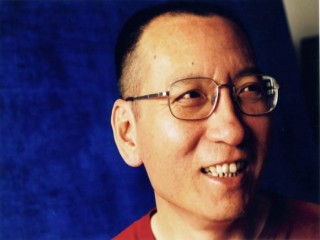
Liu Xiaobo biography
Date of birth : 1955-12-28
Date of death : -
Birthplace : Changchun, China
Nationality : Chinese
Category : Famous Figures
Last modified : 2011-09-22
Credited as : literary critic, human rights activist, Nobel Peace Prize
2 votes so far
His crimes, of course, would not be considered crimes outside of a totalitarian state, where the slightest criticism of government policies frequently leads to harsh prosecution and imprisonment. His principal offense, for which he has been imprisoned since 2009, is his co-authorship and key role in propagation of "Charter 08", a document which calls for political reforms in China, including human rights taken for granted in free societies - freedom of assembly, freedom of expression, freedom of religion, etc. Charter 08 is reported to have "thousands" of signatures from Chinese citizens, which is indicative of the level of oppression in Liu's nation, where the population numbers more than 1.3 billion.
Chinese officials described Liu's Nobel honor as "an obscenity" that "desecrates the prize", and said that the Nobel Committee had "disgraced itself". It took days for word of the Nobel Prize to reach Liu in prison, and according to reports that slowly leaked out, he responded by dedicating the honor to the "lost souls" massacred at Tiananmen Square. In the aftermath of the Nobel announcement, hundreds of ordinary Chinese people who said they agreed with Liu's views were detained, roughed up, or placed under house arrest in the aftermath of the announcement, including Liu's wife.
Neither Liu, his wife, nor anyone else of Chinese citizenry was allowed to attend the Nobel ceremonies, or to send a recorded or written message. In response to pressure from the Chinese government, the ceremony was boycotted by dignitaries from numerous nations, including Afghanistan, Colombia, Cuba, Egypt, Iran, Iraq, Kazakhstan, Pakistan, the Philippines, Russia, Saudi Arabia, Sudan, Tunisia, Ukraine, Venezuela and Vietnam. At the Nobel event, Norwegian actress Liv Ullmann read excerpts from Liu's writings, while the laureate's chair remained empty for the first time since 1935, when Carl von Ossietzky was awarded the Peace Prize in absentia as he languished in a Nazi concentration camp.
Activists and organizations from outside China, including Margaret Atwood, Salman Rushdie, International PEN, the US State Department, and the United Nations Human Rights Commission, have called for Liu's release. His prison term for incitement of subversion will be completed in 2020, but even then his punishment will continue, as his sentence stipulates two years' deprivation of political rights following his release.
Career, awards and honors:
Nobel Peace Prize 2010
International PEN President, Chinese PEN Center (2003-07)
Counter-Revolutionary Propaganda Convicted (1991)
Disturbing the Peace Convicted (1996)
Incitement of Subversion Convicted (2009)
Subversion Convicted (2009)
















